Will wolves return to Japan?
Could the wolf's return to Japan become reality? When you see how Japan deals with its tens of thousands of bears, wolf reintroductions seem doubtful. But wait, there just might be a way!
The idea of reintroducing the wolf to Japan (there once were native Honshu and Hokkaido wolves and they’ve been officially considered extinct since 1905) has been floated by the Japan Wolf Association for years - and it’s popped up again in news articles these past months. The argument is that wolf would downsize the vast deer, boar and monkey populations responsible for costly forest and agricultural damages.
While many European countries have gone through many years without large predators present - and have thus built up wholly irrational sentiments about them (aided by fearmongering lobbies, of course) - Japan has always been home to bears, many, many bears.
My initial thought was that, surely, if they had the sensibilities, understanding and common sense to get along with so many bears, then reintroducing the wolf - a species so intent on being nowhere near humans whenever possible - should be a walk in the park. There are tens of thousands of black bears on Honshu island (with a just a few more on Shikoku). And on Hokkaido you’ll find an additional twelve thousand of the very large brown bear.
Japan and the bears
While both species are mainly vegetarian, they absolutely can and do pose a potential threat to humans. Wikipedia regales me with the insight that, during the first half of the 20th century, bear attacks on Hokkaido alone caused 141 deaths and 300 injuries.
The sixty years that followed saw ‘only’ 86 attacks, resulting in 33 deaths. A downward trend? Better understanding? Better coexistence measures? Not so much. According to this excellent Reuters article, 2023 alone brought 219 bear attacks, six of them deadly.
So you see, Japan’s relationship with bears isn’t exactly healthy and with so many attacks it doesn’t appear that communities everywhere employ bear-smart principles. And when you see all of those deaths and injuries, I cannot imagine Japanese lawmakers being in favor of reintroducing the wolf - not because the wolf would post a threat to humans, but because of existing bear sentiment that, I think, will inevitable be conflated with the wolf question.
Japan killed over 9’000 black and brown bears in 2023. In addition, there’s a thriving black market for bear parts that fetch a high price. Because of this and continuing habitat destruction, bear populations are declining and it is expected that, unless something changes, the Japanese black bear will be gone within the century.
Is this a country that seems ready to return the wolf to its isles?
The Japan Wolf Association, founded in 1993, is all for it, of course. They gladly admit that, way back then, there was zero willingness to even contemplate returning the wolf to Japan. But they claim that sentiment has changed dramatically, writing that, “between 2006 and 2016, public support for their reintroduction rose from 17.4% to 43.3%. During the same period, opposition fell from 30.2% to just 11.0%.”
But then they also admit that support for the idea has leveled off since, and that Japan’s Ministry of the Environment remains staunchly against wolves in the country. In this article, the Japan Wolf Association’s director Kunihiko Otsuki agrees that at this point there won’t be further forward movement without political lobbying.
And there I personally see little hope … unless the spirits are raised.
Okami: guardian and divine messenger
The biggest chance I see for the return of the wolf to Japan lies in the country’s wolf-rich history, culture and religion. Lawmakers won’t budge until being pro wolf becomes the politically savvy thing. As ever so often, storytelling is key. In shintoism, the wolf - okami - is a divine messenger and protector. In this animist religion of spirits and guardians, the wolf has always played a prominent role.
From Wikipedia: “In the Shinto belief, the okami is regarded as a messenger of the kami spirits and also offers protection against crop raiders such as the wild boar and deer.” Sound ecological facts were well understood. That insight, learned from observing nature and anchored into their mythology, is exactly why the Japan Wolf Association advocates for the return of the wolf.
“‘Ookami’, the Japanese word for ‘Great God’, is a homonym with a word that means wolf. In fact, prior to Emperor Meiji’s ascension to the throne in 1867/68 which started the Meiji era (1868-1912), the wolf had long been worshipped as a divine messenger or the deity itself called ‘Ooguchi-no-Magami(大口真神) meaning a god of a big mouth’, for harvest, fire and theft protection, breaking off bad relationships, marital harmony, and fertility by people especially in Edo, the former name of Tokyo.” (from Hiroyuki Akaishi’s article)
There are about twenty wolf shrines on Honshu island alone … when’s the last time you saw a wolf shrine in a European country? This wealth of spiritual history, coupled with modern culture such as the iconic Princess Mononoke and the amazing Okami video game, should be employed to engage and inspire the Japanese population.
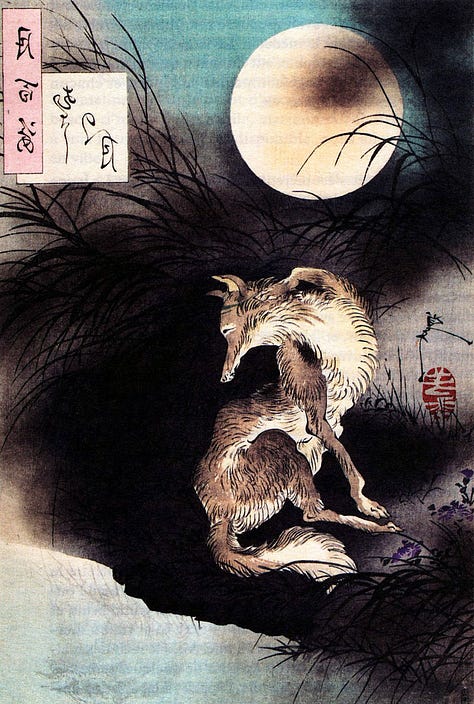
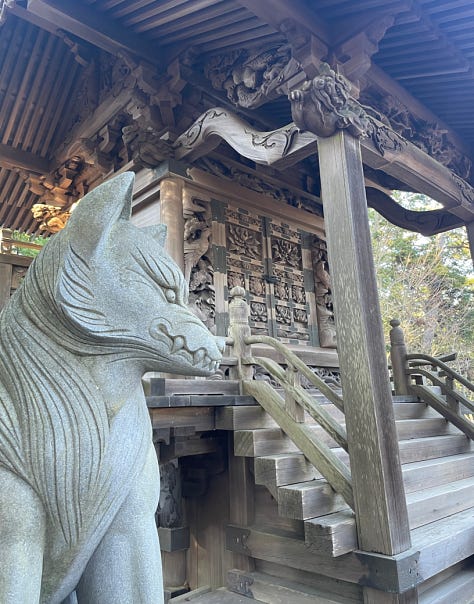
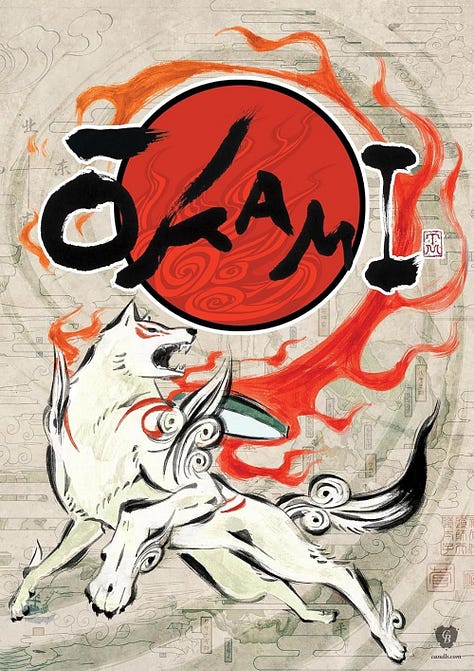


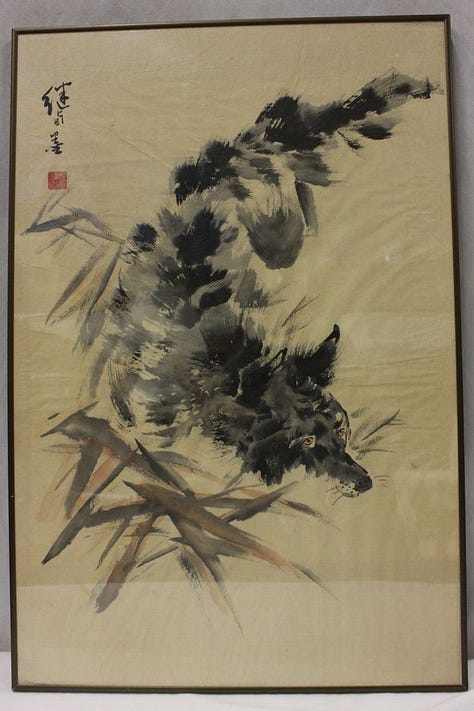
If the reintroduction of the wolf were to be storytelling-wrapped in Japan’s rich wolf culture, it might work.
On that note, how I wish there were wolf shrines across Europe - imagine if we had those beliefs, that history and reverence … we just might have the good sense to see and respect them for who they are - guardians and restorers of ecosystem balance.
Cheers,
If nature recovery is important to you …
… consider supporting the Rewilder Weekly. The rewilding movement is growing, and needs to grow a great deal more! Your subscription ensures that the Rewilder Weekly will always be around to reach, inspire and active more people around the world. Thank you for your support!
Eager for more rewilding insights?
connect with these organizations - sign up for newsletters and support them in any way you can;
join these events - conferences, online seminars, rewilding days and weeks to immerse yourself and learn from the experts;
read these books - a selection from Foreman to Macdonald, and from Tree to Daltun, Hetherington and Bowser;
listen to these podcasts - it’s inevitably inspiring when the likes of James Shooter, Ben Goldsmith and Brooke Mitchell talk to the pros in the field;
and check out these resources - explore the principles, ways of funding, research publications and personal ways to start rewilding.
And, of course, connect with and follow the many passionately engaged rewilders. Let’s keep growing the movement! 🦬🌳🐺🌞🌍





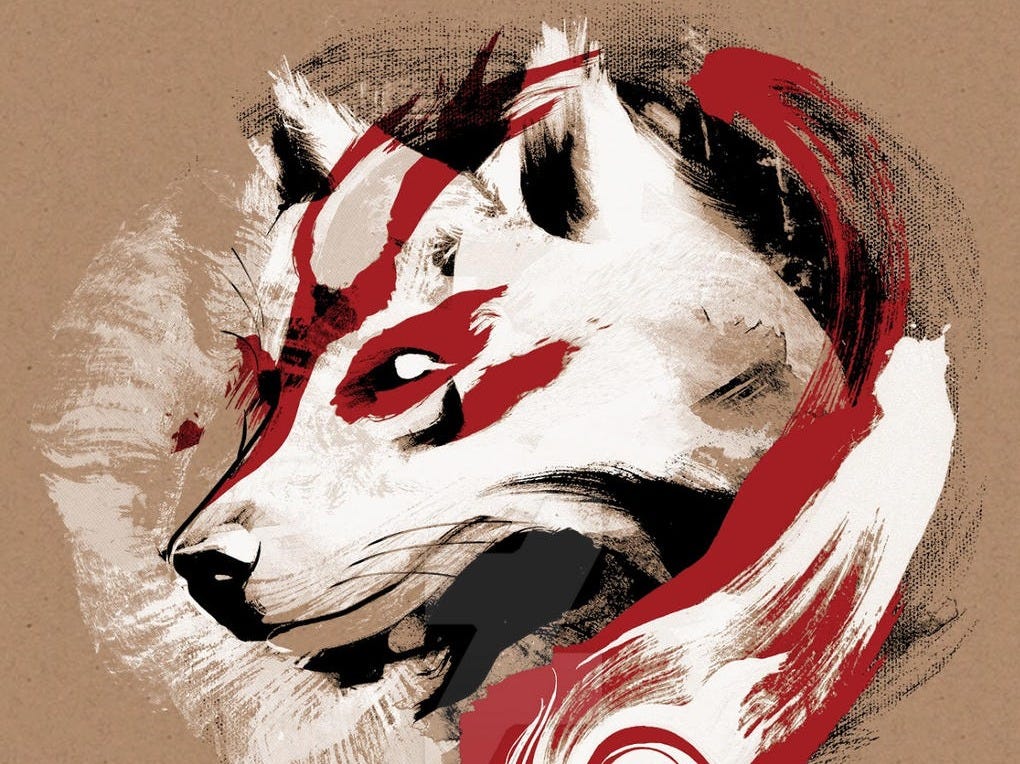




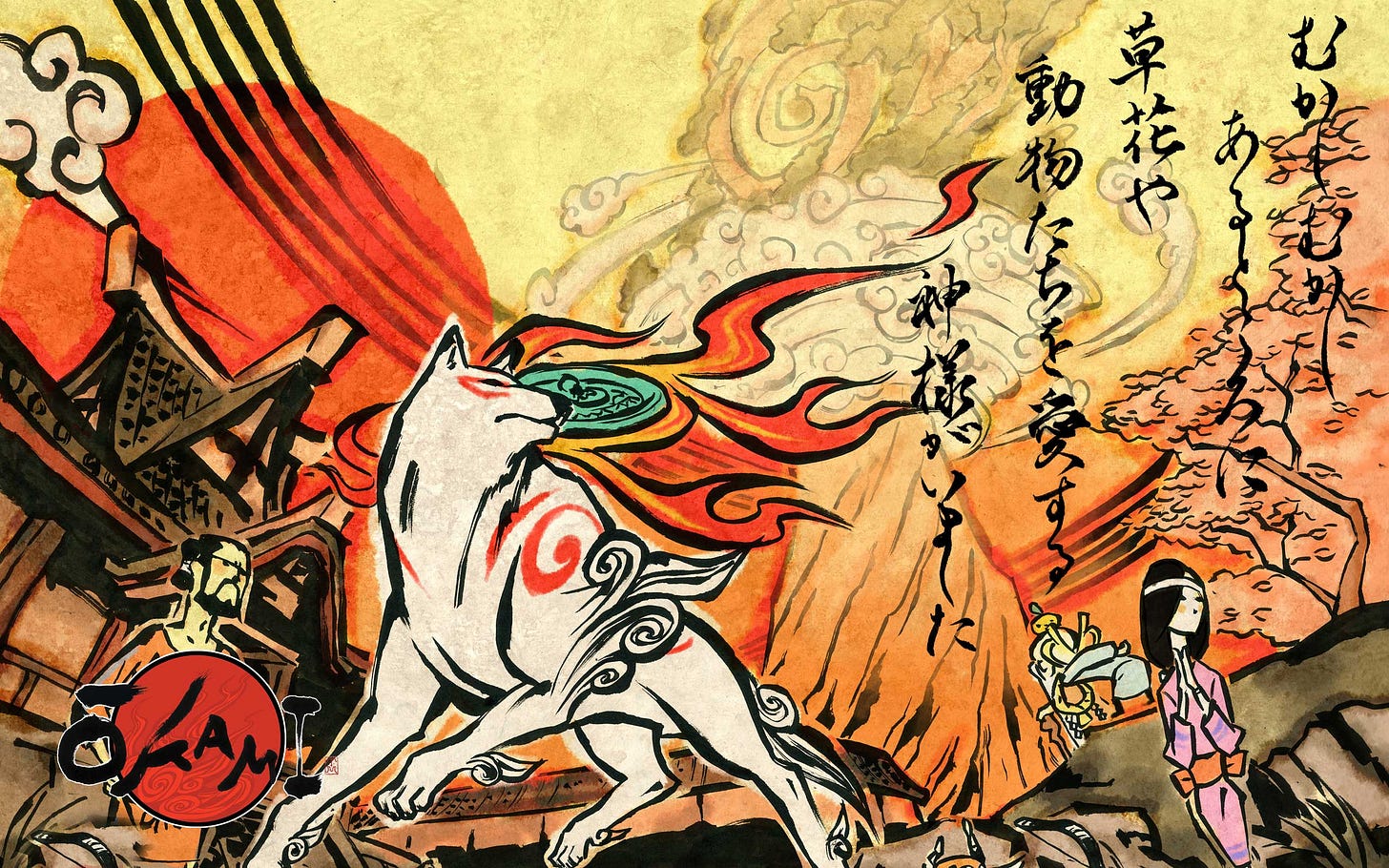



Thanks for the story and nice to find you here. Yes, interesting that the Japanese are comfortable with grizzly bears but aren't ready for wolves. We have recently welcomed wolves back to California. We need to get the word out about guardian dogs that can help protect livestock and deter wolves. Also, I came across this story today about how golden eagles are struggling in Ireland because of lack of apex predators like wolves and linx to control deer, which are eating the food the rabbits need = Not enough rabbits for eagles. https://theconversation.com/golden-eagles-were-reintroduced-to-ireland-but-without-prey-theyre-now-struggling-to-thrive-258832
They are cherished in Romania. And I remembered going in my home city, Constanta, to rock concerts and the band's name was The Bad Wolf - one song is called The pack, translation. The rock song is in romanian. :)
https://youtu.be/HTAg8ynIWgU?si=quKegMLTE-ItpTnQ